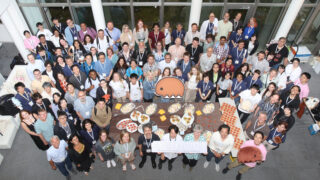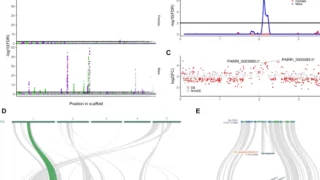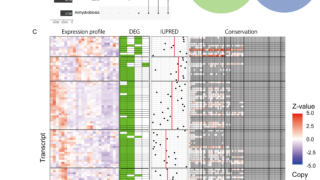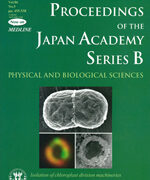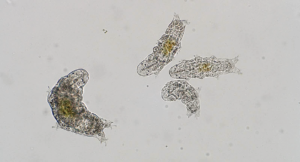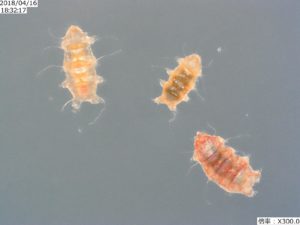Desiccation-induced fibrous condensation of CAHS protein from an anhydrobiotic tardigrade
ヨコヅナクマムシに常時高発現している熱可溶性非ドメイン型タンパクCAHSが、ストレス刺激により可逆的に繊維形成・ゲル化・細胞内凝集体形成を行すことをin vitro及びin vivoで示しました。この状態変化が乾燥耐性に寄与しているものと考えられます。
Anhydrobiosis, one of the most extensively studied forms of cryptobiosis, is induced in certain organisms as a response to desiccation. Anhydrobiotic species has been hypothesized to produce substances that can protect their biological components and/or cell membranes without water. In extremotolerant tardigrades, highly hydrophilic and heat-soluble protein families, cytosolic abundant heat-soluble (CAHS) proteins, have been identified, which are postulated to be integral parts of the tardigrades’ response to desiccation. In this study, to elucidate these protein functions, we performed in vitro and in vivo characterizations of the reversible self-assembling property of CAHS1 protein, a major isoform of CAHS proteins from Ramazzottius varieornatus, using a series of spectroscopic and microscopic techniques. We found that CAHS1 proteins homo-oligomerized via the C-terminal α-helical region and formed a hydrogel as their concentration increased. We also demonstrated that the overexpressed CAHS1 proteins formed condensates under desiccation-mimicking conditions. These data strongly suggested that, upon drying, the CAHS1 proteins form oligomers and eventually underwent sol-gel transition in tardigrade cytosols. Thus, it is proposed that the CAHS1 proteins form the cytosolic fibrous condensates, which presumably have variable mechanisms for the desiccation tolerance of tardigrades. These findings provide insights into molecular strategies of organisms to adapt to extreme environments.
Authors: Yagi-Utsumi M, Aoki K, Watanabe H, Song C, Nishimura S, Satoh T, Yanaka S, Ganser C, Tanaka S, Schnapka V, Goh E.W, Furutani Y, Murata K, Uchihashi T, Arakawa K, Kato K
Journal: Sci Rep, 2021, 11:21328
Press Release: https://www.nibb.ac.jp/press/2021/11/05.html
投稿者プロフィール


